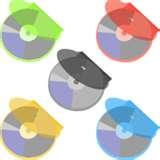About Citation Analysis: Getting Started
Introduction
In the previous unit we saw that the intellectual characteristics or structure of a discipline influence the types of research problems and methods that are acceptable.
The intellectual characteristics of a discipline also influence citation behavior—the kinds of papers that an author cites in a manuscript and the reasons for citing specific publications. Citations form a network that connects research publications, authors, and ideas over time and disciplines, and these relationships can be used to enhance research on a specific topic.
In the previous unit we saw that the intellectual characteristics or structure of a discipline influence the types of research problems and methods that are acceptable.
The intellectual characteristics of a discipline also influence citation behavior—the kinds of papers that an author cites in a manuscript and the reasons for citing specific publications. Citations form a network that connects research publications, authors, and ideas over time and disciplines, and these relationships can be used to enhance research on a specific topic.
Over time, an important paper is likely to be cited by many researchers, and the number of times a paper is cited is a popular measure of a paper’s quality, value, and impact on a research topic or discipline. However, there are many other reasons that an article may be cited, some of these reasons are not related to research quality or influence, so this approach is somewhat controversial and must be used with caution.
Because citation information has so many potential uses, and misuses, it is important that anyone involved in academic research understand the topic of citation analysis.
This module will introduce you to citation analysis, what it is, its validity, pros and cons, and the controversies that surround it.
In subsequent modules you will be introduced to a variety of citation tools, learn how to search a major citation database, and analyze citation data in the search results.
Objectives
- Define citation analysis and describe the major assumption underlying the use of citation data as a method of evaluating research quality or impact.
- Discuss reasons why items are or are not cited.
- Explain how citation information might contribute to a research project.
- Give examples that support the assertion that citation counts do indicate a paper’s research quality or impact.
- Critique the assumption that more citations to a paper mean that the paper is more important, and give three examples of when citation counts are not accurate indicators of the quality of an article.
- Summarize the controversy related to using citation analysis to evaluate research quality or impact.
- Explain if, and how, you would use citation analysis in searching and evaluating the literature on a topic.
Before you Begin...you should...
It is highly recommended that you follow the units in this module in order, but you can jump ahead or return to any pages at will.
So, if you haven't already, review the previous unit: About Research & Assessment.
It is highly recommended that you follow the units in this module in order, but you can jump ahead or return to any pages at will.
So, if you haven't already, review the previous unit: About Research & Assessment.

